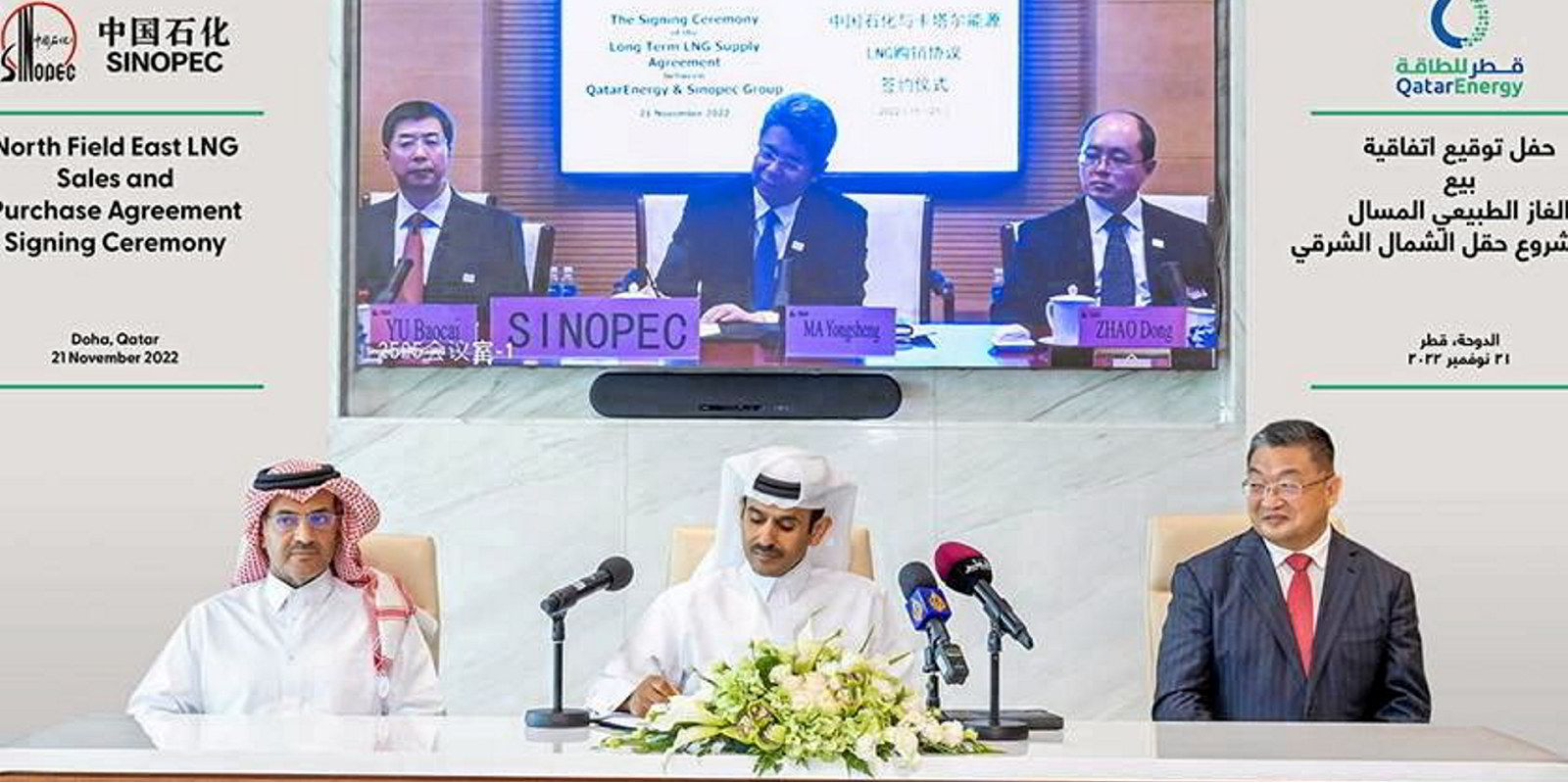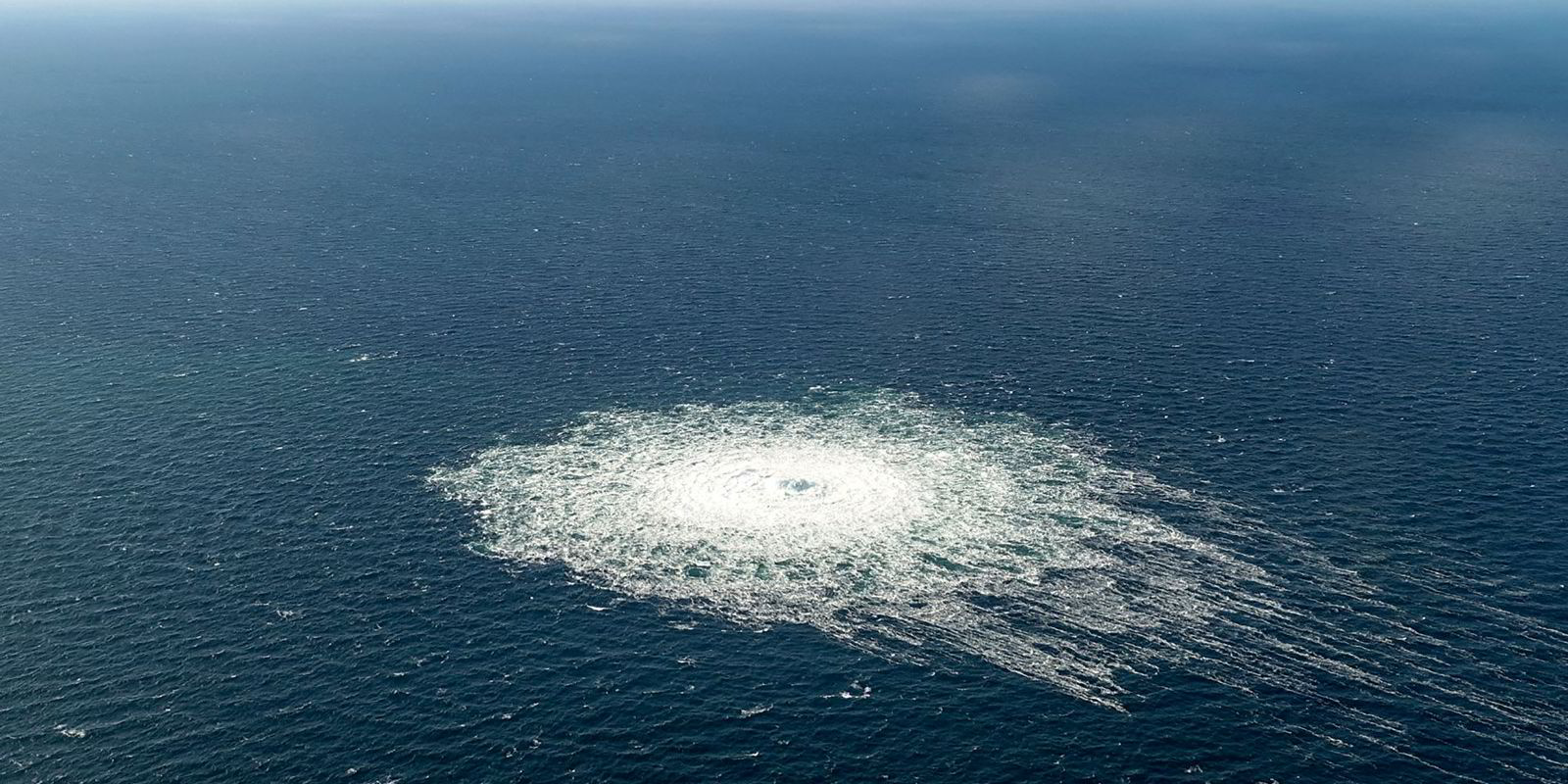Qatar has signed a 27-year deal to supply China’s Sinopec with LNG in what has been described as “the longest gas supply agreement in the history of the LNG industry”.
The deal will see QatarEnergy supply China’s largest oil conglomerate, with 4m tonnes per annum of LNG starting in 2026 in a deal estimated to be worth $60bn.
Under the terms of the sales and purchase agreement (SPA), the contracted LNG volumes will be supplied from QatarEnergy’s North Field East LNG expansion project.
This is the first supply agreement for the project to boost Qatar’s annual LNG production capacity from 77m tonnes to 110m tonnes in three years.
QatarEnergy chief executive Saad Sherida al-Kaabi, who is also Qatar’s minister of state for energy affairs, signed the agreement on Monday with Sinopec chairman Ma Yongsheng during a hybrid virtual/physical ceremony.
QatarEnergy’s al-Kaabi said the deal would “further solidify the excellent bilateral relations between China and Qatar, and help meet China’s growing energy needs”.
He added that it opens a “new and exciting chapter in our relationship with Sinopec, one that is very special and spans a number of different areas, and which we are excited about further growing and expanding into the 2050s”.
Sinopec’s Yongsheng described the deal as “a milestone” and an important part of the integrated cooperation between the two sides on the North Field East project.
“Qatar is the world’s largest LNG supplier, and China is the world’s largest LNG importer. The two countries share inherent complementarities and a good foundation for energy cooperation,” he said.
He said Sinopec “attaches great importance” to the cooperation with QatarEnergy, which it regards as a “strategic, long-term and all-round partner”.
The agreement is the second LNG SPA between QatarEnergy and Sinopec, following the 10-year SPA signed in March 2021 for the supply of 2 mtpa to China.
While China’s LNG imports have slumped this year on the government’s strict zero-Covid policy, demand is expected to rebound as soon as 2023 and continue growing over the next decade.
In 2021, mainland China emerged as the largest importer of LNG in the world, with a 20.7% share, according to Italian shipbroker Banchero Costa.
Its imports jumped by nearly 18% year-on-year to 79.1m tonnes, overtaking former world number one Japan whose imports increased just 2.8% to 76.5m tonnes.
Since Russia’s invasion of Ukraine in February, competition for LNG has become intense, with Europe in particular needing vast amounts to help replace Russian pipeline gas that used to make up almost 40% of the continent’s imports, reported Reuters.
Europe is trying to replace Russian pipeline gas with LNG, although talks with Qatar have stalled amid reluctance from the likes of Germany to commit to long-term contracts, reported Bloomberg.
Many European Union governments want to phase out fossil fuels and believe LNG deals would work against their climate goals.
European companies looking to buy LNG needed to look at how Asian buyers were approaching their own negotiations and were willing to lock into long-term deals, QatarEnergy’s al-Kaabi told Reuters, shortly before signing the Sinopec deal.





